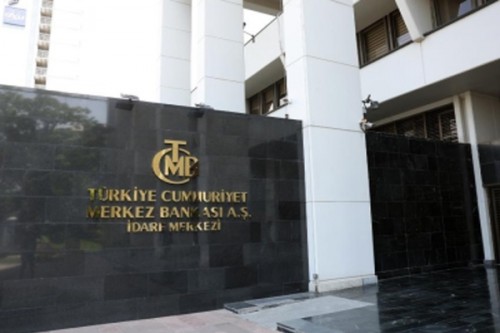Turkey delivers new rate hike as inflation outlook deteriorates

Ankara, Oct 27 (IANS) Turkey's central bank has delivered a fresh interest rate hike of 500 basis points to 35 perc ent, the fifth in a row since June, as analysts expect the country's inflation outlook to deteriorate in the coming period.
Thursday's move came as the country grapples with high inflation and a weakening Turkish lira, reports Xinhua news agency.
The central bank's monetary policy committee said in a statement that it decided to continue the monetary tightening process in order to establish the disinflation course as soon as possible, and "geopolitical developments have posed risks to the inflation outlook".
"This hike is in line with expectations," Senol Babuscu, a finance professor from Ankara's Baskent University, told Xinhua.
He said the inflation outlook for the year-end and 2024 has worsened, considering this rate increase a response to tame the persistent inflation.
The analyst also stressed that the central bank's monetary tightening process "is coming to an end" this year with possibly one more interest hike in November.
Mahfi Egilmez, a former undersecretary of the Treasury, hailed the hike as a rational move by the central bank while stressing that monetary tightening "should be accompanied by structural reforms" to strengthen the economy.
Despite a U-turn in monetary policy following the general elections in May, Turkish inflation has seen a resurgence over the past three months, standing at 61.53 per cent in September.
The central bank aggressively raised interest rates from 8.5 per cent to 30 per cent during the June-September period in the hope that higher interest rates will make it more expensive to borrow money so as to reduce demand and help bring inflation down.
However, there could be some negative consequences, as it has made it more costly for businesses to borrow money and led to a slowdown in economic growth.
The Turkish government, which is facing a difficult balancing act, raised its annual inflation forecast to 65 per cent for the year and only expects it to enter a downward trend as of the first half of 2024.
On Wednesday, President Recep Tayyip Erdogan told Parliament that more time is needed for the policy pivot to achieve positive results.
Meanwhile, the government's new economic team led by Finance and Treasury Minister Mehmet Simsek has visited several Gulf countries over the past few months to seek much-needed foreign direct investment.

|

|

